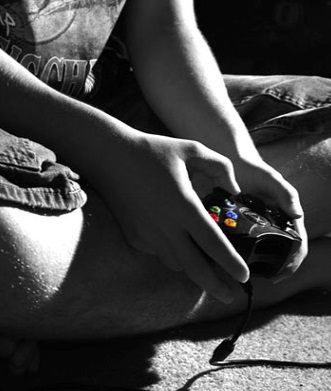Players requiring real help to get over the game
 Growing numbers of Australians require medical assistance to peel their eyes off the screen, with experts saying something must be done to combat the rampant new addiction.
Growing numbers of Australians require medical assistance to peel their eyes off the screen, with experts saying something must be done to combat the rampant new addiction.
A number of factors have come together to create a new level of attraction and integration for internet devices, with smartphone ownership in the fourteen to seventeen age group increasing by thirty per cent this year.
There are different tastes between the sexes, with boys tending to latch onto video games and girls becoming heavily embroiled in social media outlets, but the effects are the same.
Young people are beginning to seek help for the emerging condition, with mental health services in some states saying they are seeing increasing cases of people who simply cannot pull themselves away from their virtual existence.
Chief executive of Cornerstone Youth Services in Tasmania, Cate Sinclair, says becoming stuck in an internet world has damaging effects on the reality it neglects.
Symptoms include; “really low self-esteem, stress, anxiety, wanting not go to school for fear of what might happen, so lots of social issues and mental health issues,” Ms Sinclair said.
“Young people, especially guys, [are] saying that they're addicted to gaming,” she said.
“And then what can happen from an addiction to gaming, online gaming, can actually turn into an addiction to gambling as they grow older. So we can sort of predict some patterns and outcomes that can happen as a result.”
As with many such behavioural conditions, online addiction is created and contributed to by a range of factors.
Dr Philip Tam from the Network for Internet Investigation and Research Australia says there can be numerous underlying contributors.
“Since this is such a very newly emerging disorder, there probably are very few GPs and psychologists and even school counsellors who really know how to handle this disorder, because it's really only been with us for a few short years.
“Really you've got to do a very holistic, thorough and empathic family interview, and then ultimately you've got to treat the cause, which almost always [is] one of those underlying mental health conditions,” he said.
“Really the message is yes, it needs to get taken seriously, not just by government, but by schools, by families, and by parent groups... Have a look at some trials where we might, for example, have some funding to see how we could test certain strategies that help in achieving balanced use of smart phones and social media,” Dr Tam suggested.
Recovering video game addict and Launceston university student Gavin Lewandowski-Timson described the condition in a recent interview.
“It's so subtle, as opposed to cigarettes or alcohol or marijuana which are addictive and they're in the media and they're in the spotlight constantly,” he said.
“Whereas in my head gaming was to a lesser degree, so it just crept up on me and it's something that I didn't take as seriously.
He says he was soon spending many of his waking hours in a virtual fantasy land.
“I was wagging school, I was avoiding seeing friends and my girlfriend, so I could get that next piece of gear or new piece of loot,” he said.
Going ‘cold turkey’ was the best way for him to rid himself of the high-tech hindrance.
“The easiest way for me to get out of that was to give away all my game items and currency to my guild members, and then delete my account,” Mr Lewandowski-Timson said.







 Print
Print